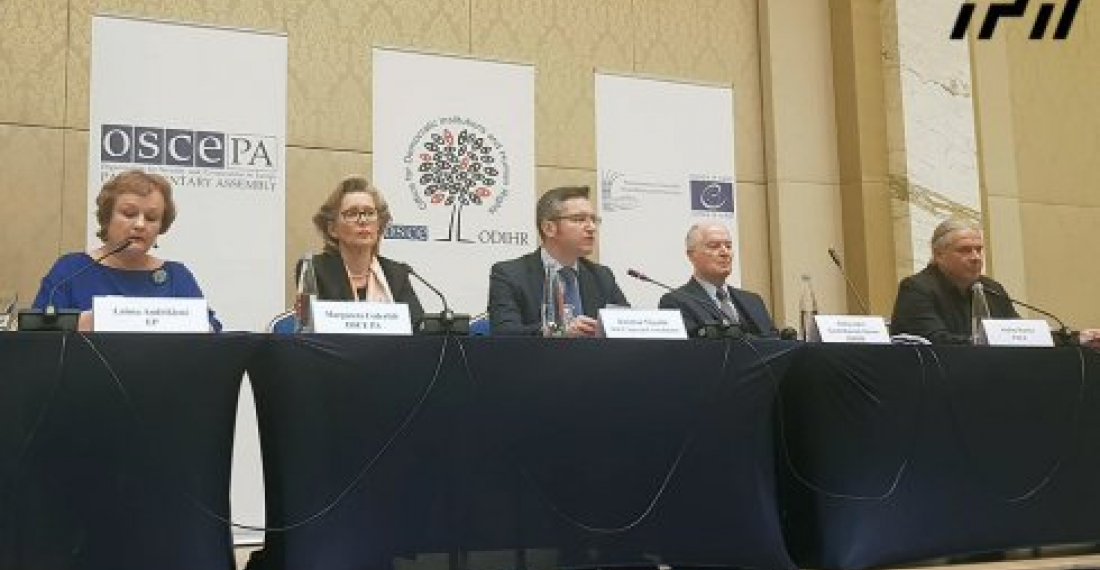"Georgia has a good international standing as a democracy, and the corresponding commitment shown by citizens and voters was visible and impressive. The quality of the election was undermined, however, by unnecessarily sharp confrontation, negative campaigning and personal insults by some members of the political class, who did this rather than dealing with issues really important for Georgia, such as the rule of law and economic inequality," said Ambassador Geert-Hinrich Ahrens, Head of the ODIHR election observation mission. "These negative practices were even worse than in the lead up to the first round", he added.
Ahrens was speaking at a press conferfence in Tbilisi where the international monitoring missions that observed the elections gave their preliminary findings.
"The second round of Georgia's presidential election was competitive and candidates were able to campaign freely; however one side enjoyed an undue advantage and the negative character of the campaign on both sides undermined the process, the international observers concluded in a preliminary statement released today. While the election was well administered, the absence of regulations for key aspects of election run-offs led to a lack of legal certainty, the statement says.
The campaign for the 28 November vote was marred by harsh rhetoric and isolated incidents of violence, as well as by an increase in the misuse of state resources, further blurring the separation of party and state, the observers said. Private media continued to demonstrate sharp polarization and bias in coverage, while the public broadcaster did not ensure editorial independence and impartiality, the observers said.
"Georgian citizens made their choice. Now all of the concerns raised in our preliminary conclusions today and in the upcoming final report on the election have to be dealt with by the authorities without delay," said Kristian Vigenin, Special Co-ordinator and leader of the short-term OSCE observer mission. "I believe that we have a common goal - to improve the electoral process, thus strengthening democracy in the country. I hope that now, after months of tense campaigning and polarization in society, the newly elected president will spare no efforts to ensure the unity of the nation."
You can read the Preliminary Statement of the Observation Missions on the OSCE website here
source: commonspace.eu with osce.org
photo: Press Conference of the International Observation Missions following the Georgian presidential elections






